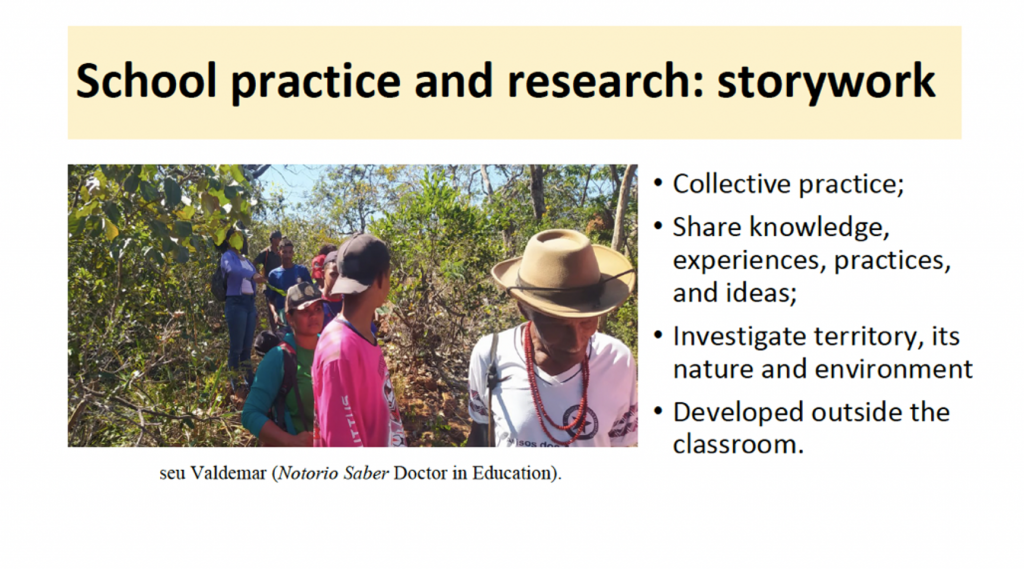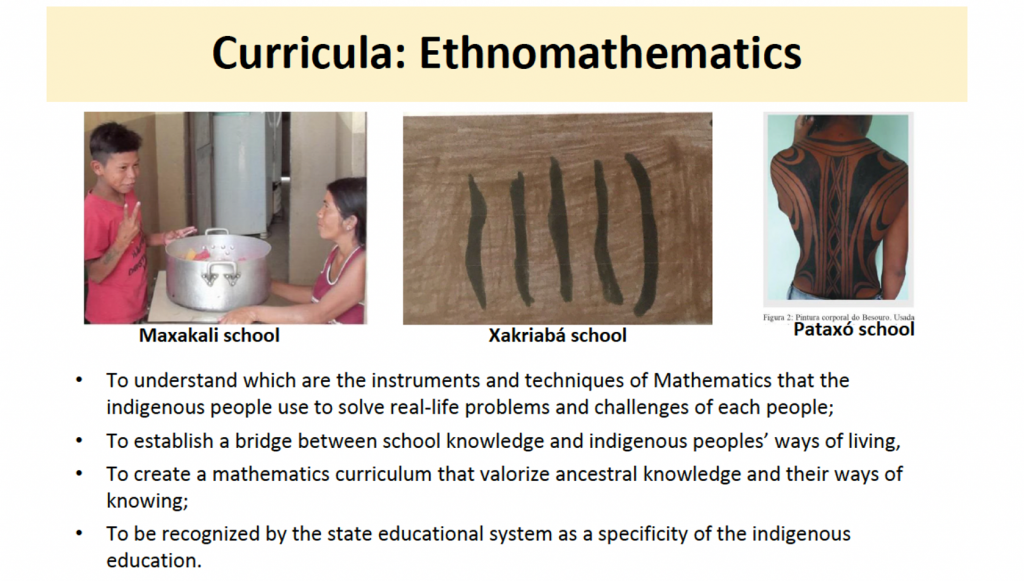Summary of SyMETRI meeting March 28, 2023 by Qiaochu Xu
Presenter/Guest Speaker: Dr. Vanessa Tomaz from the Universidade Federal de Minas Gerais, Brazil
Date: March 28th, 2023
Host: Dr. Cynthia Nicol
In the SyMETRI meeting on March 28th, 2023,
Dr. Vanessa Tomaz from the Universidade Federal de Minas Gerais, Brazil, presented her research on decolonizing and Indigenizing mathematics curriculum for Indigenous teachers and communities to SyMETRI members. Dr. Tomaz emphasized the need for co-constructed intercultural research methodologies. By highlighting the ways in which traditional practices and cultural values can inform the teaching and learning of mathematics, educators can create more meaningful and relevant educational experiences for Indigenous students, while also promoting cross-cultural understanding and respect.
During her presentation, Dr. Tomaz touched upon the importance of school practice and research surrounding story work. Storywork provides teachers with opportunities to share knowledge, experiences, practices, and ideas, fostering a sense of community and collaboration. It also provides students with opportunities to investigate territories, nature, and the environment, helping to cultivate a deeper understanding of the natural world and its relationship with human communities. Dr. Tomaz shared that in the Indigenous communities in Brazil, knowledge is transmitted through the contact between generations via storytelling, with elders being considered as “real living books”. They pass on traditional knowledge and values, including lessons about the natural world, community life, and spiritual beliefs.
Dr. Tomaz highlighted the significance of Ethnomathematics in developing a deeper understanding of how Indigenous peoples use mathematical concepts to solve real-life problems and address challenges unique to their communities. By establishing a bridge between school knowledge and Indigenous peoples’ ways of living, Ethnomathematics creates a curriculum that reflects the lived experiences and cultural practices of Indigenous communities. It allows for the exploration of diverse mathematical concepts and techniques that are embedded in Indigenous cultures. By embedding Ethnomathematics with their teaching, educators can work towards developing curricula that reflect and value the unique perspectives and ways of knowing that are intrinsic to Indigenous communities.
During her presentation at the SyMETRI meeting, Dr. Tomaz introduced her colleagues and students from the Universidade Federal de Minas Gerais and shared examples of their work in indigenizing mathematics curriculum, including a range of teaching examples, such as students’ paintings, indigenous music and songs, and handicrafts, as well as materials created by indigenous teachers. Following the presentation, SyMETRI members engaged in a lively discussion, posing questions regarding the relationship between mathematics and social practices in teaching within indigenous communities
Below are some of the slides from her presentation:
Presenter Bio
Dr. Vanessa Sena Tomaz is currently an associate professor of the Department of Methods and Techniques of the Faculty of Education of the Federal University of Minas Gerais and of the Postgraduate Program in Education: Knowledge and Social Inclusion, of the Faculty of Education-UFMG, where she served as coordinator of the research line in Mathematics Education. She guides undergraduate, master’s and doctorate research on the subject of Indigenous Mathematics Education and Intercultural Education, indigenous research methodologies, in an inter-epistemic perspective as a way to decolonize the academic field, and in partnership with indigenous and non-indigenous researchers from Brazilian universities. She also participates in social projects that seek to guarantee indigenous rights and participates in committees to support indigenous people in indigenous education and against the Covid-19 pandemic.


